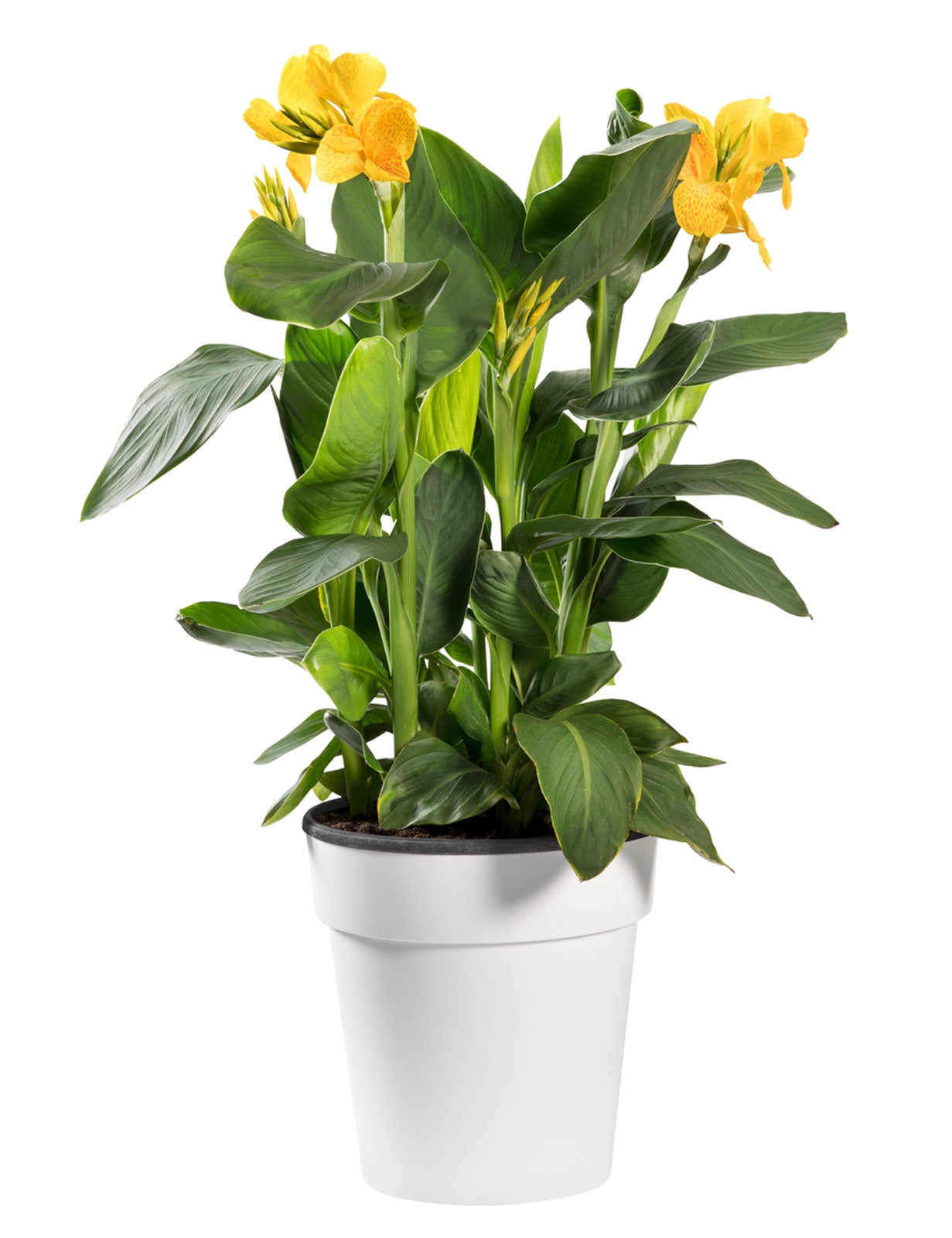Containers For Canna Lily Plants: How To Plant Cannas In Pots


Flowering plants in containers give the gardener flexibility, the chance to change locations of blooms and move to different sun exposure as needed, and have a flowering presence while beds are being prepared. Growing cannas in containers is a good way to guarantee summer blooms.
Cannas in Containers
Potting a canna lily is best done in a large container, as the plant needs room for the root system to develop. The larger the pot, the more bulbs you can plant, resulting in more blooms from the canna growing in pots. Containers for canna lily plants can be made of ceramic material or clay -- either glazed or unglazed. They can be a hardy, durable plastic or even half of a wooden barrel.
Canna growing in pots can get quite tall, up to 5 feet (1.5 m.). They have large leaves, so choose a pot that is durable and will support the large roots and tall plant. Plant complimentary blooms of other bulbs and flower seeds for an attractive mixed container to bloom at different times of the year. Experiment and have fun when learning how to plant cannas in a pot.
How to Plant Cannas in a Pot
Choose the container for your potted canna lily, making sure there are drainage holes in the bottom. Add a layer of pebbles or driveway rock at the bottom of the pot to facilitate drainage in addition to the holes. When potting a canna lily, use rich, organic soil. Fill pots to within an inch or two (2.5-5 cm.) of the top of the containers, then plant the canna tubers 4 to 5 inches (10-13 cm.) deep. Plant with the “eye” pointing upward.
Caring for Cannas in Containers
Keep the soil moist until plants are established. As a somewhat tropical specimen, cannas in containers like high humidity and full, hot sun. Canna blooms add a tropical presence and bold color to the container arrangements. A mid to late summer bloom can last a few weeks.
Deadhead spent blooms and keep soil moist, but not soggy. Spreading rhizomes should be dug and stored for winter in zones lower than USDA zones 7 to 10, where they're winter hardy. When storing the rhizomes, cut the tops off and place in a plastic storage bag, or move the entire container into a garage or building where temperatures remain between 45 and 60 degrees F. (17-16 C.).
Rhizomes of canna growing in pots multiply quickly and will need division. Thin the tubers in the early spring or before storing for winter. Slice tubers into pieces, if desired. As long as there in an “eye” in the portion of tuber, a bloom can be expected.
Sign up for the Gardening Know How newsletter today and receive a free copy of our e-book "How to Grow Delicious Tomatoes".

Becca Badgett was a regular contributor to Gardening Know How for ten years. Co-author of the book How to Grow an EMERGENCY Garden, Becca specializes in succulent and cactus gardening.